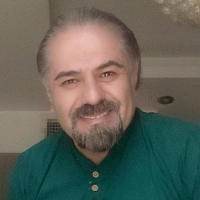The effect of flipped teaching methods, cooperative, inquiry and speech on learning the experimental sciences of sixth grade elementary students
The current research is applied in terms of purpose and quantitative approach, which was performed on a quasi-experimental basis using four groups with pre-test and post-test with the control group. The study involved 40 students from four boys' primary schools in the city of Neyshabour, whose teachers were purposefully selected. In each school, ten sixth-graders with moderate intelligence were selected according to the teachers. The experimental groups were trained using exploratory, collaborative and reverse teaching methods, and the control group was trained by lecturing in Five 45-minute sessions using designed protocols. It should be noted that two sessions were dedicated to teacher training for the proper implementation of . The duration of this course was five weeks and the content of that ninth chapter was the topic of the Energy Science textbook. Data collection tools included designed teaching protocols in collaborative, reverse and exploratory methods, and pre-test and post-test forms, each with ten questions, the validity of which was examined using teachers' opinions. To analyze statistical data, descriptive statistics indicators and inferential statistics were used. Regarding the research questions, the results showed that there is a significant difference between the methods of reverse teaching, exploration, cooperation and lecturing in the learning of sixth grade elementary there is a significant difference between the effect of the flipped method and the effect of other methods. This study suggests the use of flipped teaching methods to teach various topics along with other methods such as collaboration and exploration for experimental science lessons.
Flipped teaching , cooperative , Inquiry , speech , learning
-
Pattern of Professional Development of Human Resources of Knowledge-based Companies(Study case: Science and Technology Park of Iranian Research Organization for Science and Technology)
Bijan Abdollahi *, Jafar Salemi, Hasan Zeinabadi, Ghasem Ramezanpour Nargesi
Management Researches, -
Requirements for optimal allocation of public resources to higher education institutions considering the impact of sanctions and the country's tax capacities
Abdolrahim Nohebrahim*, Hassan Reza Zeinabadi, Hossein Abbassian, Mohammad Taherinejad
Iranian National Tax Administration, -
Effective teaching strategies in teaching geography (Case study: 10th-grade human)
Mehdi Aasadi *,
Journal of Research in Social Studies Education, -
Challenges of teaching geography: from the perspective of teachers (case study: high school humanities students)
*, Ebrahim Amiri
Journal of Research in Social Studies Education,




